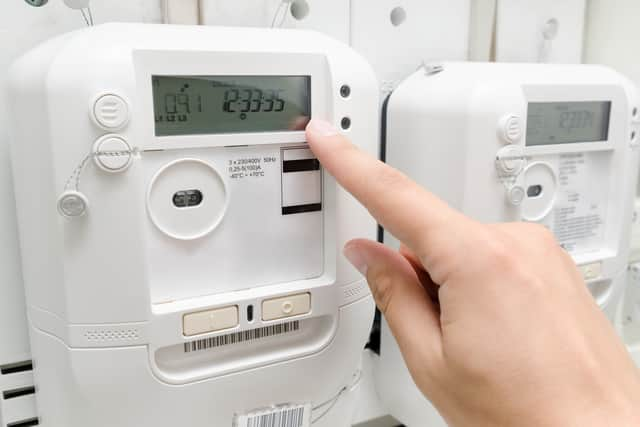Two-day warning for UK households to take meter reading before energy price cap change
and live on Freeview channel 276
Households across the UK are being urged to take an up-to-date meter reading ahead of Ofgem’s energy price cap change.
The energy regulator has announced that the cap will be lowered from the current £3,280 per year to £2,074 from 1 July for households in England, Wales and Scotland.
The lower cap will replace the government’s Energy Price Guarantee (EPG), which currently limits the typical household energy bill to around £2,500. It means that the average household will see their annual energy bill fall by £426 once the new cap is introduced - a fall of around 17%.


Ofgem said the reduction reflects the recent fall in wholesale energy prices and will mark the first time consumers on default tariffs have seen their prices fall since the global gas crisis took hold more than 18 months ago.
Even though bills will be going down, the energy regulator has said it is important for households to send meter readings to their energy supplier ahead of the lowered price cap coming into effect to avoid paying out more than necessary. It means that households can take advantage of the new rate and ensure energy suppliers are not overcharging based on an out-of-date or incorrect tariff.
Households should submit meter readings before midnight on 30 June to ensure they are paying the lower prices as soon as they come into effect. Accurate readings will stop the energy suppliers from estimating usage and potentially applying the old higher prices to energy that is used after this date
Those who cannot submit readings ahead of 30 June should do so as close to the date as possible, keeping a date-stamped photo as proof. If you think your bill is not reflective of the lower rates after 1 July, you can challenge it with your energy supplier providing you have accurate and up-to-date information.
Energy Security Secretary Grant Shapps said previously: “It’s positive households across the country will see their energy bills fall by around £430 on average from July, marking a major milestone in our determined efforts to halve inflation.
“We’ve spent billions to protect families when prices rose over the winter, covering nearly half a typical household’s energy bill – and we’re now seeing costs fall even further with wholesale energy prices down by over two thirds since their peak as we’ve neutralised Putin’s blackmail. I’m relentlessly focused on reducing our reliance on foreign fossil fuels and powering-up Britain from Britain to deliver cheaper, cleaner and more secure energy.”
The energy price cap works by setting a limit on the maximum amount suppliers can charge for each unit of gas and electricity and the rate applies to anyone who is on a standard default energy tariff. It is not a cap on how much households can be charged for energy. As such, the more energy you use, the more you will pay.
The price cap used to be set by Ofgem every six months, but since August last year it is now reviewed every three months. But while July’s lower price cap is positive news for households, Ofgem chief executive Jonathan Brearley said more focus will be needed for the government, the regulator and the industry to support the most vulnerable groups this winter.
He said: “After a difficult winter for consumers it is encouraging to see signs that the market is stabilising and prices are moving in the right direction. People should start seeing cheaper energy bills from the start of July, and that is a welcome step towards lower costs.
“However, we know people are still finding it hard, the cost-of-living crisis continues and these bills will still be troubling many people up and down the country. Where people are struggling, we urge them to contact their supplier who will be able to offer a range of support, such as payment plans or access to hardship funds.
“In the medium term, we’re unlikely to see prices return to the levels we saw before the energy crisis, and therefore we believe that it is imperative that government, Ofgem, consumer groups and the wider industry work together to support vulnerable groups. In particular, we will continue to work with government to look at all options.”
Comment Guidelines
National World encourages reader discussion on our stories. User feedback, insights and back-and-forth exchanges add a rich layer of context to reporting. Please review our Community Guidelines before commenting.
